Ever wonder what your smart speaker is really listening to when it’s not answering your questions? Or why your thermostat seems to know when you’re about to leave the house-even before you grab your keys? The truth is, most smart home devices collect data. Not just a little. A lot. And not always in ways you’d expect.
What kind of data do smart home devices actually collect?
It’s not just voice commands. Your Amazon Echo records audio snippets every time it hears its wake word-like "Alexa"-and sends them to Amazon’s servers. These aren’t just stored for a few seconds. They’re kept for months, sometimes years, unless you manually delete them. Google Nest devices do the same with "Hey Google." Even your smart thermostat, like the Nest or Ecobee, tracks your daily routines: when you wake up, when you leave for work, when you turn the heat down at night. It’s not magic. It’s data.
Smart cameras? They don’t just record when motion is detected. Many store full video clips in the cloud, sometimes with facial recognition turned on by default. Doorbells like Ring capture not just who’s at your front door, but also how long they linger, whether they’re carrying packages, and sometimes even the license plates of cars parked nearby. And yes, that data can be shared-intentionally or not-with third parties, law enforcement, or even advertisers.
Even your smart lightbulbs can be data points. Philips Hue, for example, tracks how often you turn lights on and off, which rooms you use most, and even the times you’re home versus away. That’s not just for convenience. It’s used to improve algorithms, train AI models, and sometimes sold to data brokers.
Who’s using this data-and why?
Companies say they collect data to make your devices smarter. That’s true-but it’s not the whole story. The real reason? Profit. Your behavior patterns are valuable. If your smart fridge notices you buy milk every Tuesday, that’s data Amazon or Google can sell to grocery chains. If your sleep tracker shows you wake up at 3 a.m. every night, that’s data a pharmaceutical company might pay for to target ads for sleep aids.
Third-party apps connected to your smart home-like IFTTT or SmartThings-often get access to your device data too. You might think you’re just linking your lights to your calendar. But behind the scenes, those apps can collect, store, and even resell your usage habits. And most users never read the fine print.
Then there’s law enforcement. In 2024, over 1,200 U.S. police departments requested data from Ring doorbell users. Some homeowners voluntarily shared footage. Others had their data handed over without their knowledge after court orders. Smart home devices are becoming digital witnesses-whether you want them to be or not.
What’s the real risk? It’s not just hacking.
Most people worry about hackers breaking into their cameras. That’s scary-but it’s not the biggest threat. The bigger issue is data collection by the companies you trust. You’re not being hacked. You’re being monitored. And you’re giving permission.
Think about this: Your smart speaker knows your favorite songs, your bedtime, your grocery list, and who you argue with at home. Your smart TV knows what you binge-watch. Your fitness tracker knows your heart rate during stressful moments. Combine all that, and you’ve got a detailed psychological profile. Companies use this to predict your next purchase, influence your mood with ads, or even sway your opinions through targeted content.
And it’s not just corporations. In 2023, a Canadian privacy watchdog found that three major smart home brands were sharing user data with marketing firms without clear consent. The data included voice recordings, location history, and even timestamps of when users turned devices off. All of it was anonymized-but anonymization can be reversed with enough data points.
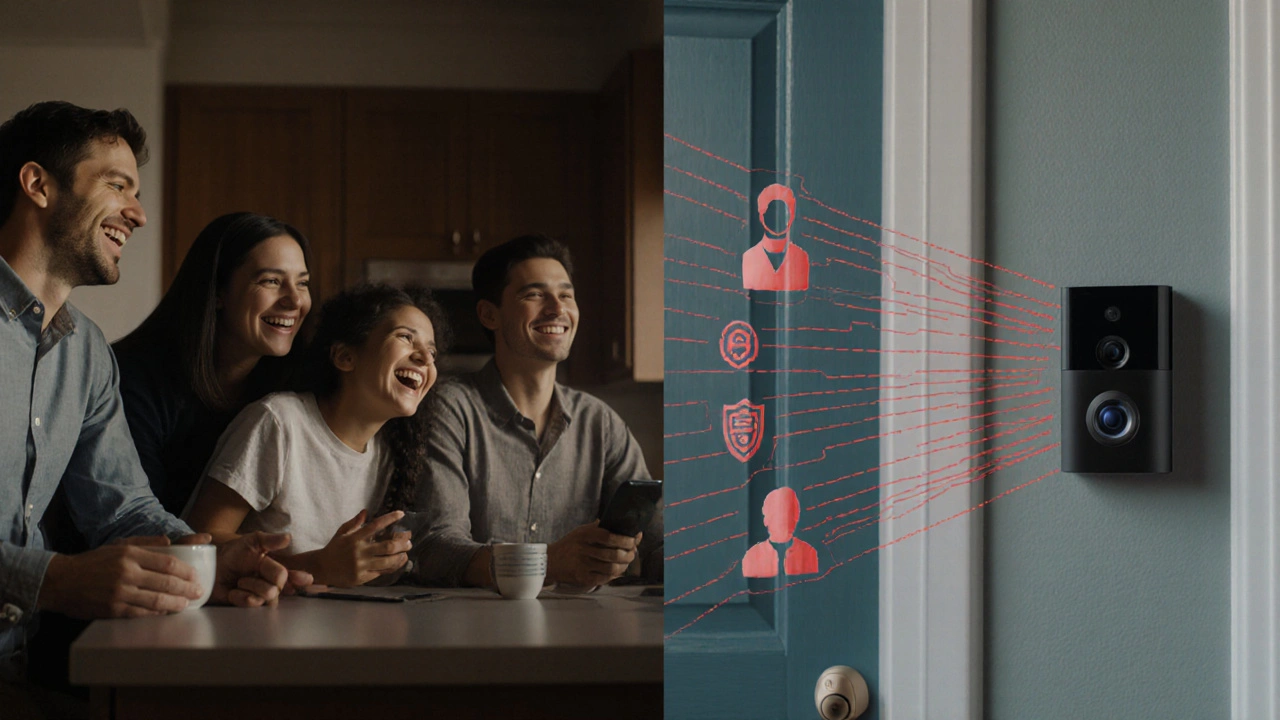
Can you stop it? Yes-but it takes work.
You don’t have to give up your smart home. But you do need to take control.
- Delete recordings regularly. In the Alexa app, go to "Alexa Privacy" and delete voice recordings by date or say, "Alexa, delete what I just said." Do this monthly.
- Turn off voice recording by default. On Google Nest, disable "Voice & Audio Activity" in settings. On Amazon, turn off "Improve Alexa" under "Voice History."
- Use local storage. Some cameras, like Eufy, store video on a microSD card inside the device instead of the cloud. No internet? No data leak.
- Limit third-party integrations. Don’t connect your smart lock to a random app just because it "has a cool feature." Each connection is a new data pathway.
- Check privacy settings every six months. Companies update their policies. You should too. Look for "Data Sharing" or "Advertising Preferences" in your device apps.
And if you’re really serious? Buy devices from companies that publish clear privacy policies and don’t sell your data. Brands like Eufy, Nanoleaf, and certain HomeKit-certified products have stronger privacy standards than Amazon or Google.
Why does this matter in 2025?
By 2025, the average Canadian household will have over 12 connected devices. That’s more sensors, cameras, and microphones than most people realize. And the rules? Still lagging behind the tech.
Canada’s Personal Information Protection and Electronic Documents Act (PIPEDA) gives you rights to access and delete your data-but enforcing those rights is slow and confusing. Most users don’t know how to file a complaint, or even where to start.
Meanwhile, new laws in the EU and California are forcing companies to be more transparent. Canada is catching up-but slowly. Until then, you’re the only one protecting your data.
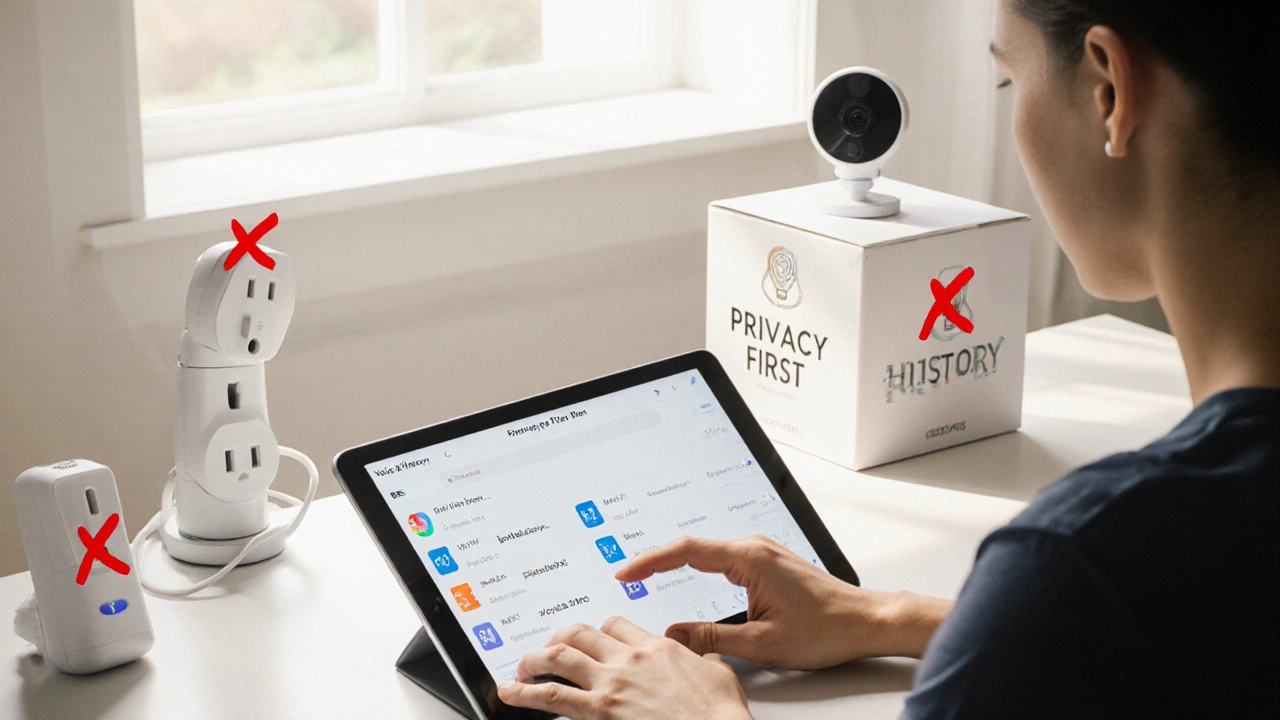
What’s the trade-off?
Smart devices make life easier. Lights turn on when you walk in. Coffee starts brewing before you get out of bed. Thermostats save you money. But convenience comes at a cost: your attention, your habits, your silence.
You don’t have to live without smart tech. But you should understand what you’re giving up. Every time you say "Hey Google," you’re handing over a piece of your daily life. The question isn’t whether these devices collect data. They do. The real question is: are you okay with that?
Start small. Delete one month of voice history. Turn off one data-sharing setting. That’s your first step toward reclaiming control.
Do smart home devices record all the time?
No, most devices only start recording after hearing a wake word like "Alexa" or "Hey Google." But some, like security cameras, record continuously when powered on. Always check the device settings-many have a physical mute button or a privacy mode.
Can someone else listen to my smart speaker recordings?
Amazon and Google say only their employees review a small sample of recordings to improve voice recognition. But in 2024, a whistleblower revealed that some contractors had access to sensitive audio, including medical discussions and private arguments. You can opt out of human review in your privacy settings.
Is my data safe if I use a local hub like Apple HomeKit?
HomeKit devices that use end-to-end encryption and local processing (like Eve or Aqara) keep data on your iPhone or HomePod instead of the cloud. That means Apple can’t access your footage or voice history. It’s one of the most privacy-friendly setups available.
Do smart plugs collect data?
Yes. Smart plugs track when devices are turned on and off. Over time, this reveals your routines-like when you wake up, when you leave for work, or even if you’re home during the day. Some brands sell this data to energy companies or advertisers.
Can I delete my data from smart home companies?
Yes, but it’s not always easy. Amazon and Google let you delete voice recordings through their apps. For cameras, you can delete clips manually or set auto-deletion after 30 days. To fully erase your data, you may need to contact customer support. Keep a record of your requests.
Next steps: What to do today
Don’t wait for a breach or a privacy scandal to act. Start now:
- Open your smart home app-Alexa, Google Home, or Apple Home.
- Go to Privacy Settings.
- Turn off voice recording history and data sharing.
- Delete the last 30 days of recordings.
- Unlink any unused third-party apps.
That’s it. Five minutes. That’s all it takes to take back some control. Your home should feel safe-not watched.
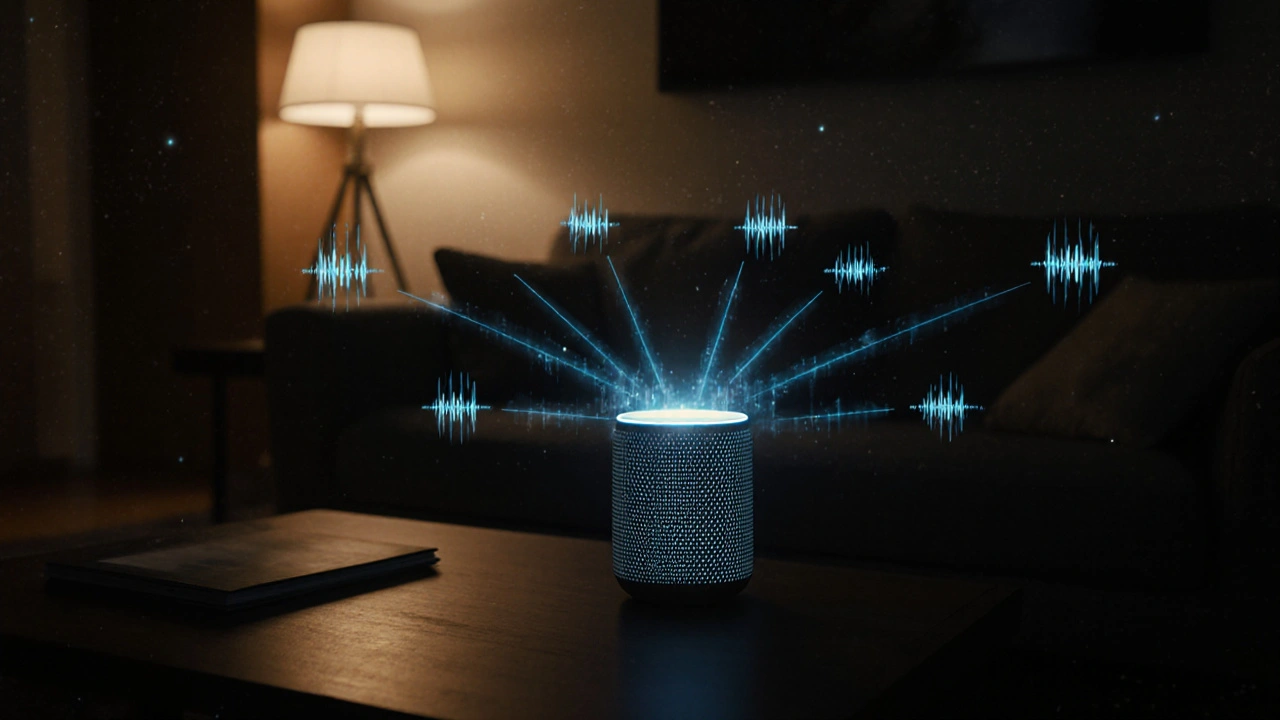

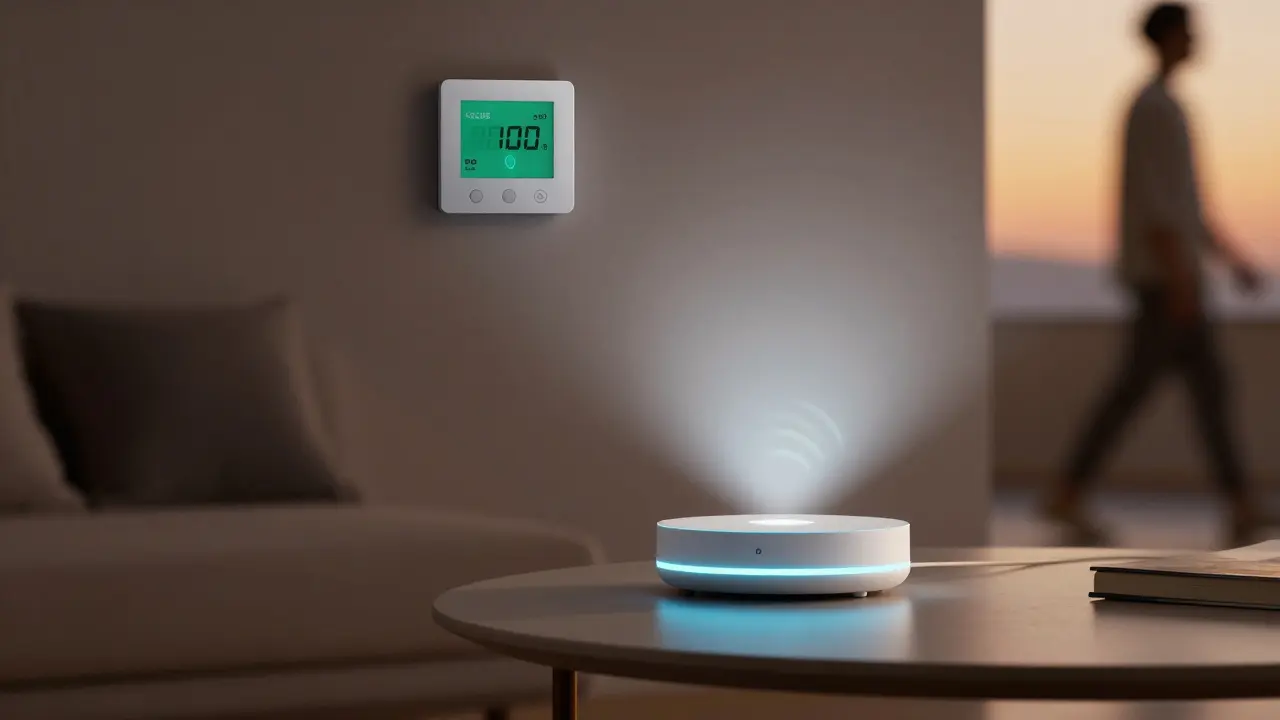
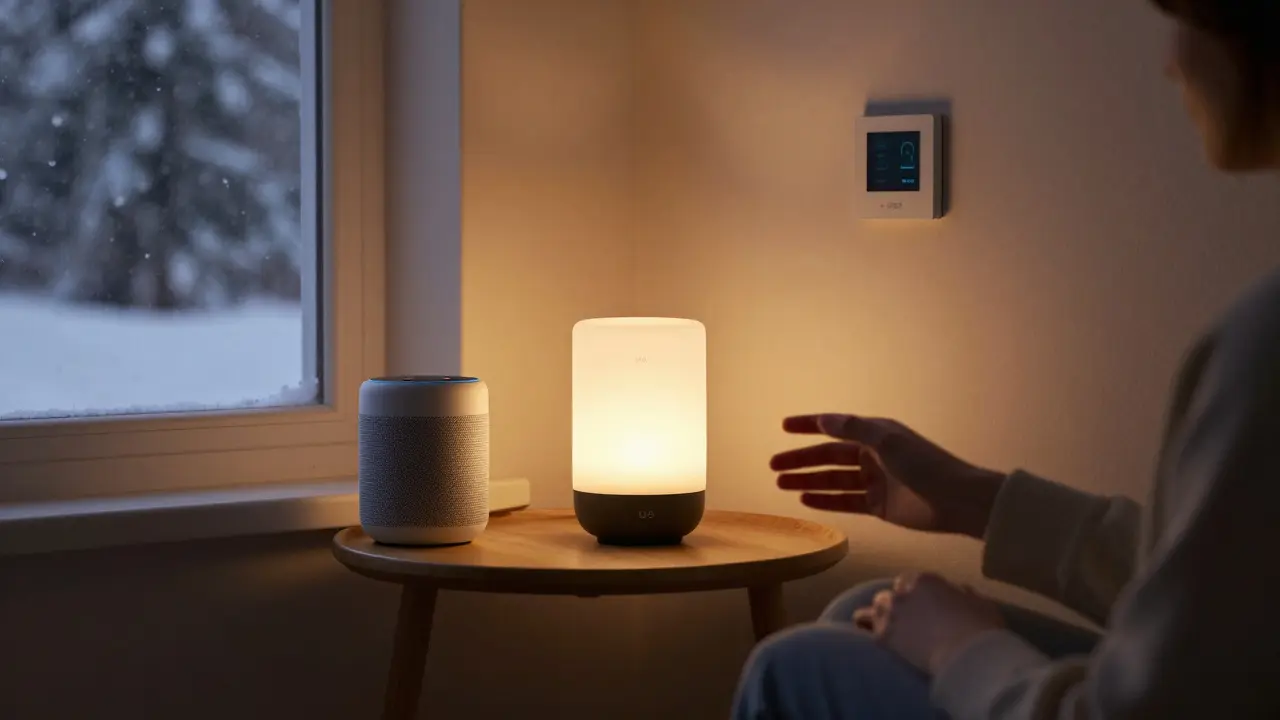
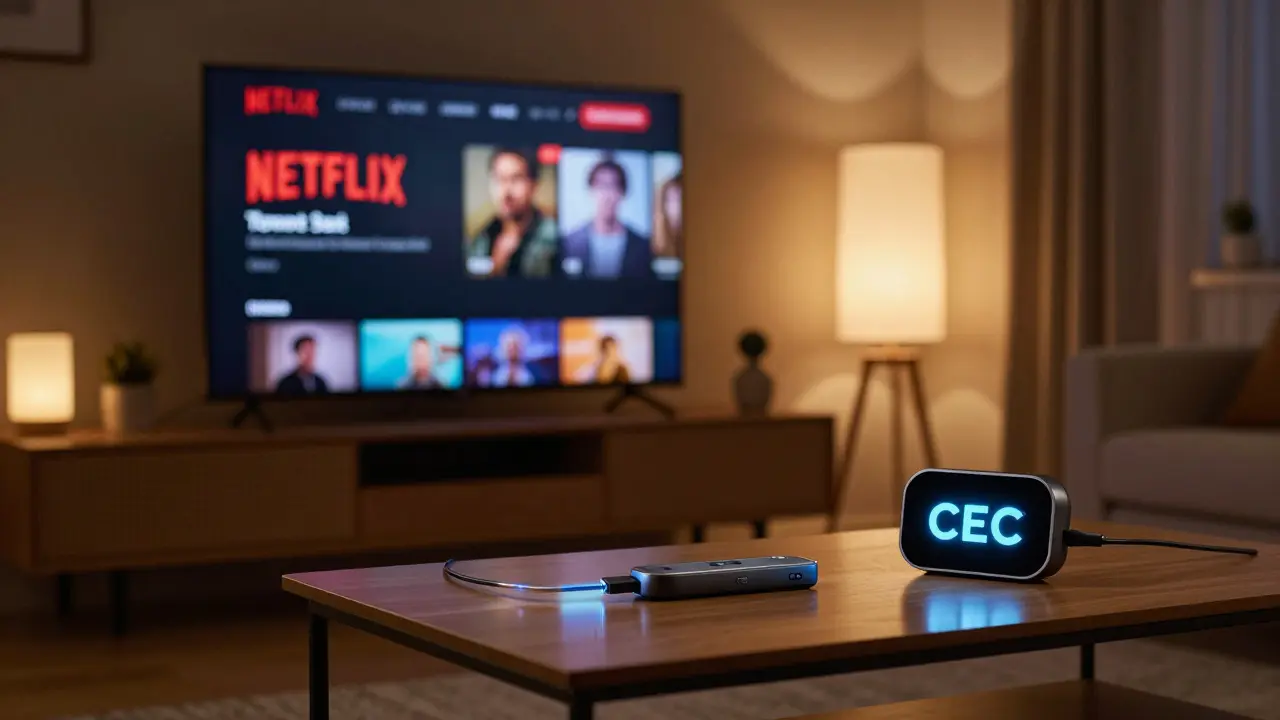
Albert Navat
November 18, 2025 AT 15:44Let’s be real - your Echo isn’t just listening, it’s profiling you. Every "Alexa, play my playlist" is training a model to predict your emotional state. They’re not just selling ads, they’re selling your mood cycles to mental health startups. And don’t even get me started on how smart plugs correlate your coffee maker usage with your cortisol levels. This isn’t IoT, it’s behavioral surveillance with a side of convenience.
King Medoo
November 20, 2025 AT 12:26I’m not saying we should all live in the 90s, but… have you considered that every time you say "Hey Google," you’re essentially giving a corporation a backstage pass to your private life? 🤔 I mean, your thermostat knows when you cry after work. Your lights know when you skip dinner. And you’re okay with that? 🤷♂️ It’s not paranoia - it’s pattern recognition. And companies are monetizing your vulnerability. Wake up.
Rae Blackburn
November 22, 2025 AT 04:02LeVar Trotter
November 22, 2025 AT 12:33There’s a real opportunity here to reframe this conversation. Most users don’t realize that privacy isn’t about rejecting tech - it’s about controlling access. Eufy’s local storage model proves you don’t need cloud dependency. HomeKit’s end-to-end encryption works because Apple treats your data like a vault, not a commodity. The key is choosing devices designed for privacy, not just features. Start with one device. Audit one setting. It’s not about going off-grid - it’s about being intentional.
Tyler Durden
November 23, 2025 AT 10:09Aafreen Khan
November 25, 2025 AT 03:13Pamela Watson
November 25, 2025 AT 17:25You don’t need to be paranoid - just smart. Turn off voice history. Delete recordings. Don’t connect your smart lock to some sketchy app. And for the love of god, stop letting your smart TV know what you watch. I mean… really? You think Netflix doesn’t know you binge-watch true crime at 2 a.m.? They’re selling that to advertisers. It’s not magic. It’s math. And you’re the data point.
michael T
November 27, 2025 AT 13:52Every time I say "Alexa, what’s the weather?" I feel like I’m whispering my secrets to a corporate ghost. I’ve started yelling at my devices just to make them glitch - "ALEXA, I HATE MY LIFE!" - and sometimes it laughs back. That’s not a feature. That’s a cry for help. And I’m not the only one. We’re all just data ghosts in someone else’s algorithm. And the worst part? We keep buying more devices. Like addicts. With Wi-Fi.
Christina Kooiman
November 29, 2025 AT 04:23Let me correct a few things in the original post - and please, someone, proofread before publishing. "They’re kept for months, sometimes years, unless you manually delete them" - this is grammatically correct, but the comma splice before "unless" is incorrect. Also, "It’s not magic. It’s data." - this is a fragment. And you say "PIPEDA gives you rights" - but it’s not a verb. It’s an acronym. You can’t say "PIPEDA gives," you must say "PIPEDA grants" or "under PIPEDA, you have rights." Also, "you’re being monitored" - that’s a passive construction. You should say "companies are monitoring you." And please, stop using "data" as a plural noun. It’s singular. Data is the plural of datum. You’re not writing a college paper - but you should at least try.
Stephanie Serblowski
November 30, 2025 AT 18:09Okay, so yes - smart homes are creepy. But let’s not throw the baby out with the bathwater. I use HomeKit because it’s encrypted, local, and doesn’t sell my life story. I’ve got a Nanoleaf light strip that only responds to my iPhone. No cloud. No tracking. And guess what? It still turns on when I walk in. 🌟 The tech isn’t the problem - it’s the business model. We can have convenience without consent erosion. We just have to vote with our wallets. And maybe stop buying Amazon stuff. Just saying. 😌
Renea Maxima
December 1, 2025 AT 08:24What if the real question isn’t whether they’re collecting data - but whether we’ve stopped asking ourselves why we let them? We don’t fear surveillance. We fear the silence after we turn it off. The loneliness of a house that doesn’t respond. Maybe we don’t want to be free from the devices… we just want to be understood by them. And that’s the real tragedy. Not the data. The dependency.